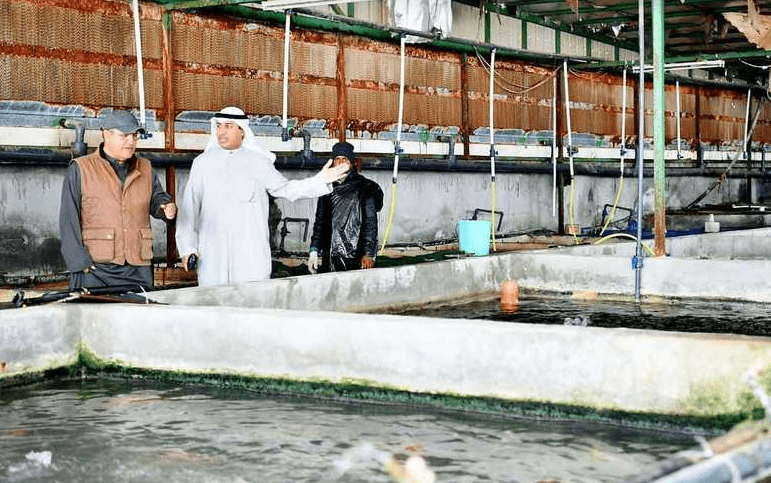The fish farming in Kuwait heralds a “golden period” and a real trend towards self sufficiency that is expected to be achieved by fish farms with abundant production, especially in Turkish sea bass, tilapia, sabaiti and grouper, says the Director General of the Public Authority for Agricultural Affairs and Fish Resources, Eng. Meshaal Al-Quraifa.
Al-Quraifa told Al-Qabas along the sidelines of his tour of some farms specialized in fish farming that this farming encourages more government support, which means that this achievement has real repercussions on food security and local sufficiency and praised the process of successfully cultivating Turkish sea bass, tilapia, grouper, subaiti and other varieties and providing large quantities of it.
He pointed out that the current results herald a golden period of local production and successful farming that provides fish locally without the need for import and charging the consumer with additional costs.
He stressed that the success of cultivating some species would encourage the trend towards various imported varieties that arrive in Kuwait at high prices, “and this is within the future plan of the Authority.”
He mentioned that the Wafra PAAAFR hatchery, which is part of the food security system under the directives of the political leadership and the Council of Ministers, distributes a type of fish seed to farmers to encourage them to produce and fish farming.
Al-Quraifa said that the authority encourages all successful works, whether on the agricultural, fish or animal level, and supports the recruitment of foreign expertise, acquisition and application of it on the land of Kuwait, stressing the follow-up of the procedures for the project of shrimp farming in Al-Subbiya and allocating its site with the Silk City Authority, despite the difficulty of cultivating shrimp.
He pointed out that the aim of fish farming projects is to provide a strategic stock that acts as a wall to face temporary interruptions in import or production and to insure against crises in the long term, which reduces the gap between natural production and consumption and achieves self-sufficiency.

